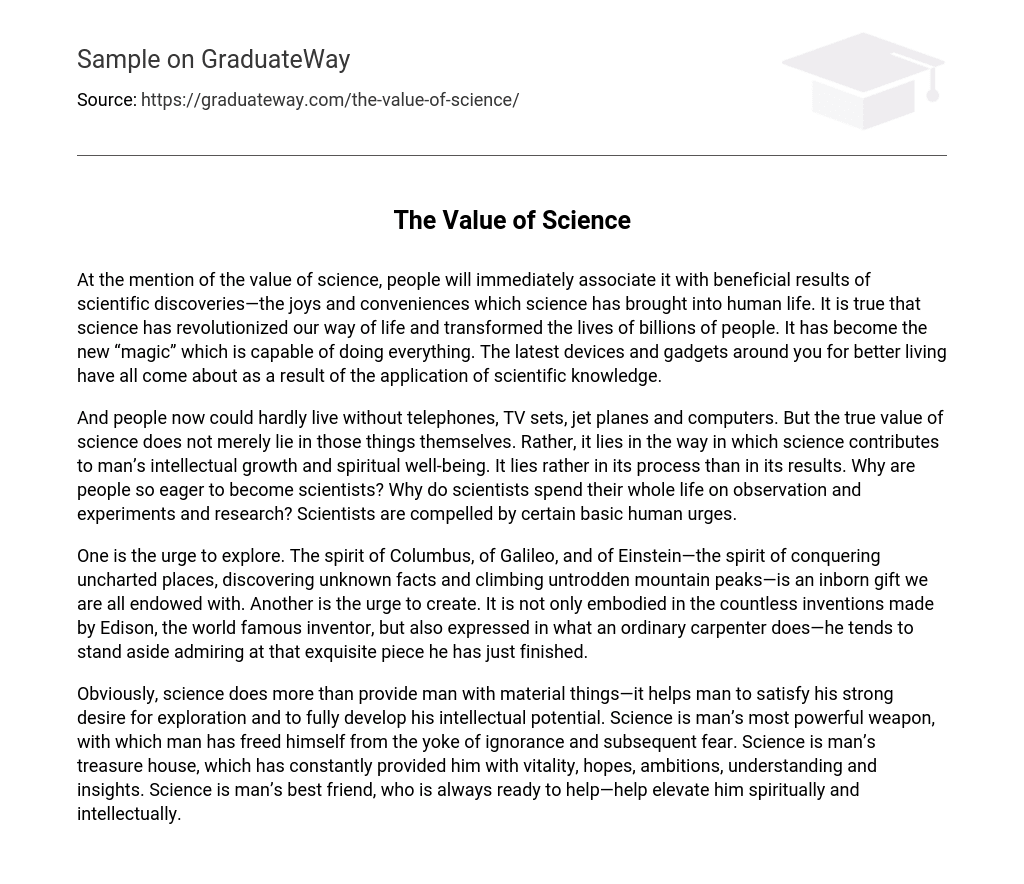At the mention of the value of science, people will immediately associate it with beneficial results of scientific discoveries—the joys and conveniences which science has brought into human life. It is true that science has revolutionized our way of life and transformed the lives of billions of people. It has become the new “magic” which is capable of doing everything. The latest devices and gadgets around you for better living have all come about as a result of the application of scientific knowledge.
And people now could hardly live without telephones, TV sets, jet planes and computers. But the true value of science does not merely lie in those things themselves. Rather, it lies in the way in which science contributes to man’s intellectual growth and spiritual well-being. It lies rather in its process than in its results. Why are people so eager to become scientists? Why do scientists spend their whole life on observation and experiments and research? Scientists are compelled by certain basic human urges.
One is the urge to explore. The spirit of Columbus, of Galileo, and of Einstein—the spirit of conquering uncharted places, discovering unknown facts and climbing untrodden mountain peaks—is an inborn gift we are all endowed with. Another is the urge to create. It is not only embodied in the countless inventions made by Edison, the world famous inventor, but also expressed in what an ordinary carpenter does—he tends to stand aside admiring at that exquisite piece he has just finished.
Obviously, science does more than provide man with material things—it helps man to satisfy his strong desire for exploration and to fully develop his intellectual potential. Science is man’s most powerful weapon, with which man has freed himself from the yoke of ignorance and subsequent fear. Science is man’s treasure house, which has constantly provided him with vitality, hopes, ambitions, understanding and insights. Science is man’s best friend, who is always ready to help—help elevate him spiritually and intellectually.





